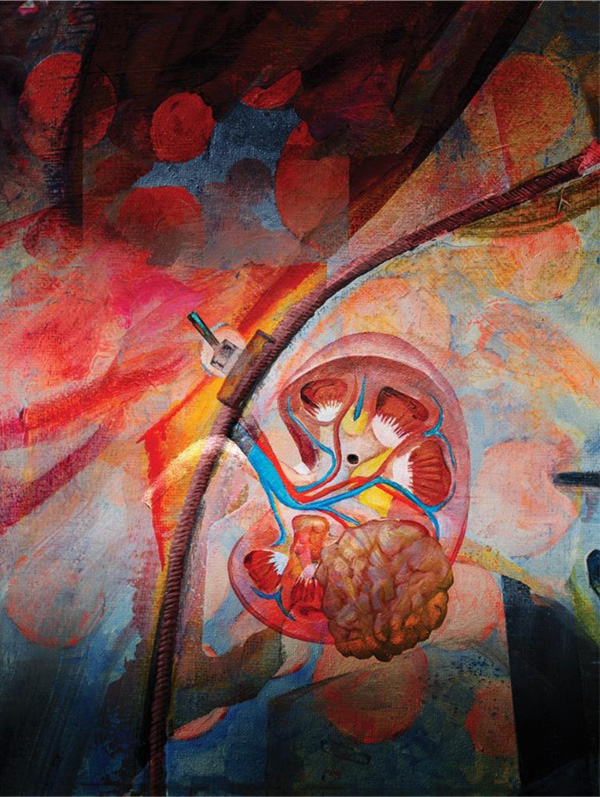News
Unlocking a key to kidney cancer: New research advances understanding of tumour growth

Caption: Artistic rendition of kidney cancer being ‘switched on’ or activated by the loss of the gene PBRM1.
Image credit: Gregoire Vion
Researchers from A*STAR’s Institute of Molecular and Cell Biology (IMCB) and National Cancer Centre Singapore (NCCS) have discovered how the loss of a gene, PBRM1, can lead to the development of kidney cancer. When the gene PBRM1 is inactive, it results in the formation of abnormal protein complexes that activate a cancer-causing pathway called NF-κB. These complexes redistribute proteins throughout the genome, leading to heightened NF-κB activity and the expression of genes that promote cancer cell growth.
Led by Professor Teh Bin Tean, Joint Research Director at IMCB’s Chromatin Therapeutics Laboratory and Deputy Chief Executive Officer (Research) at NCCS, the research team compared normal and diseased proteins to understand their impact on cancer development. The findings highlight that PBRM1 serves as a protective mechanism, preventing the abnormal activation of NF-κB and maintaining the integrity of healthy proteins. Additionally, the researchers discovered that treating kidney cancer with a drug called bortezomib can suppress NF-κB activation and delay tumour growth.
“The inactivation of PBRM1 is a type of genetic change that is caused by altering the structure of DNA in the cell. Scientists have been finding ways to target and treat these changes to prevent cancer. Our study has proven that it is possible to control and target this kind of genetic change, thus paving the way for emerging therapeutic methods to develop suitable treatments for cancer,” said Dr Yao Xiaosai, lead author of the study and principal scientist from the Department of Oncology Bioinformatics and Discovery Oncology, Genentech.
https://www.nature.com/articles/s41556-023-01122-y
A*STAR celebrates International Women's Day

From groundbreaking discoveries to cutting-edge research, our researchers are empowering the next generation of female science, technology, engineering and mathematics (STEM) leaders.
Get inspired by our #WomeninSTEM
.png?sfvrsn=c3edc68e_6)